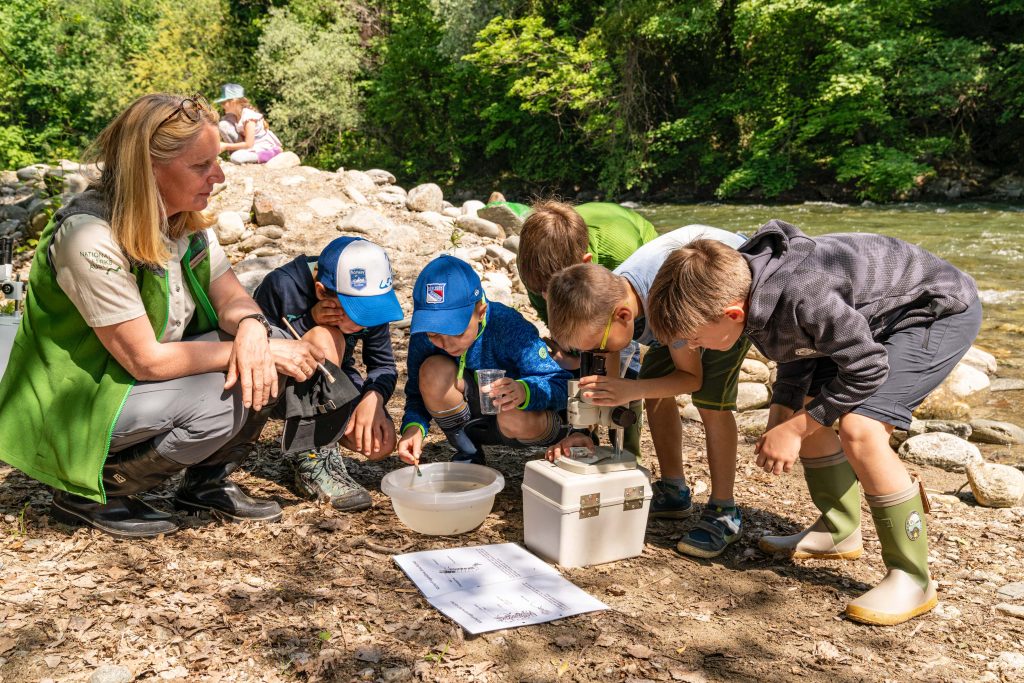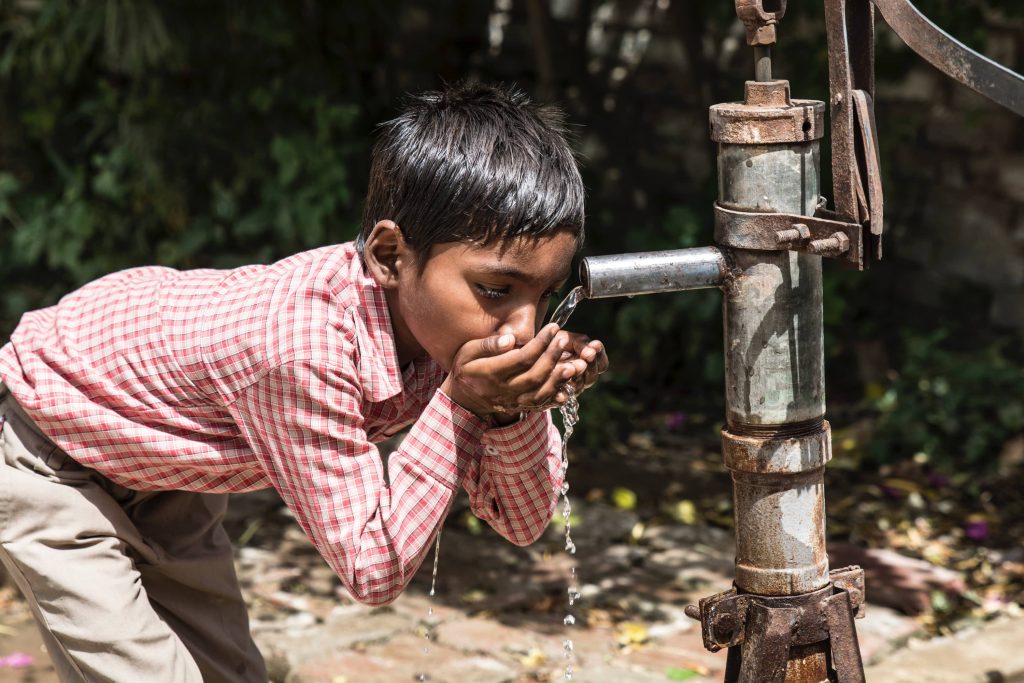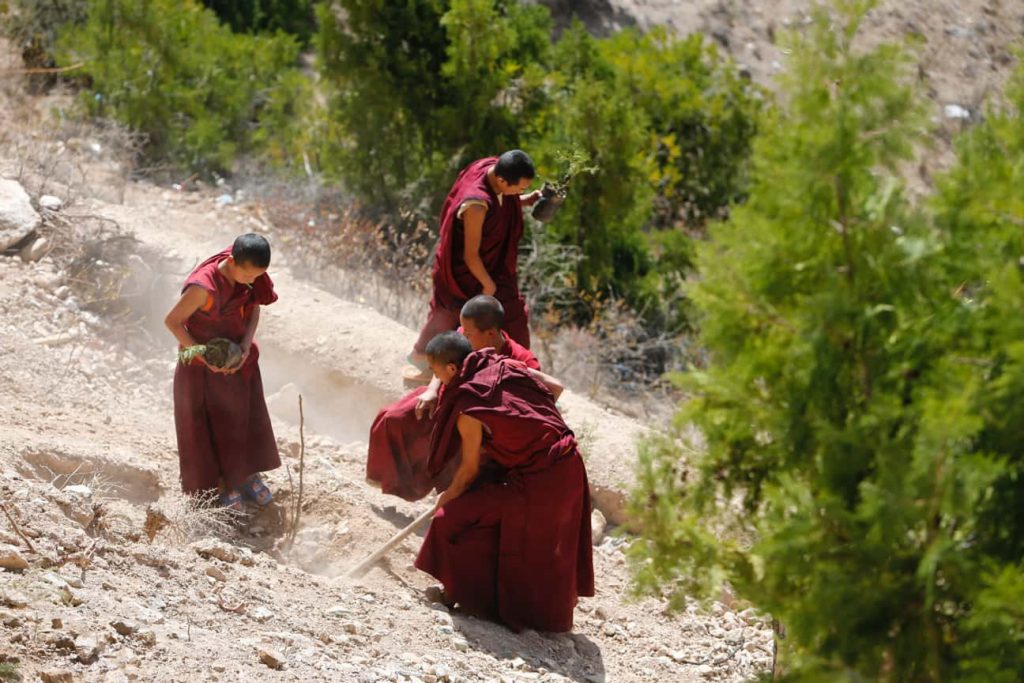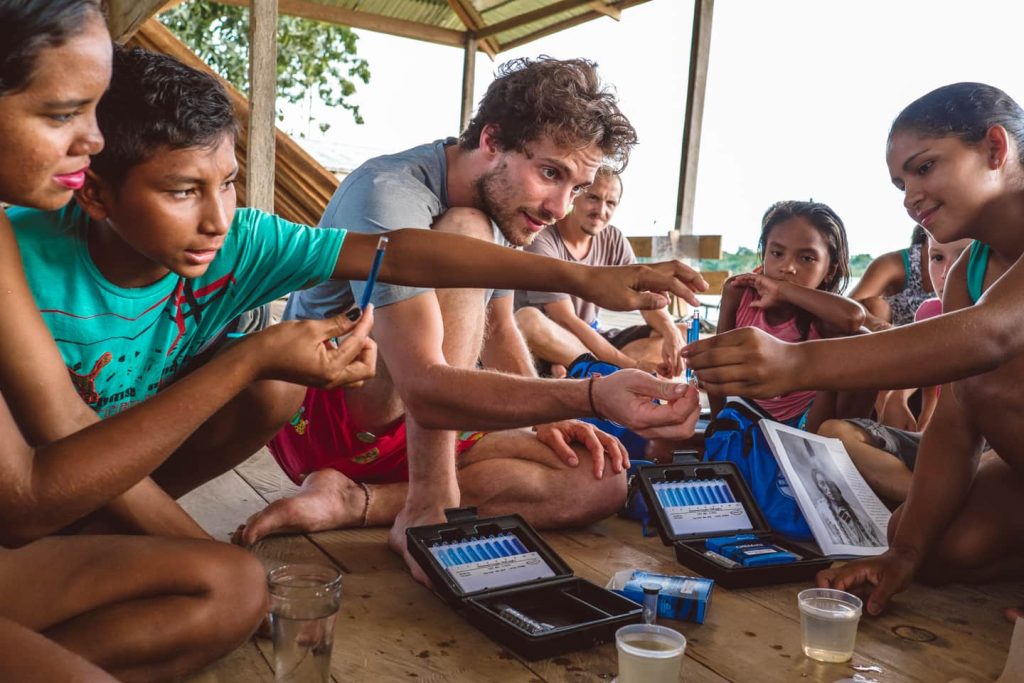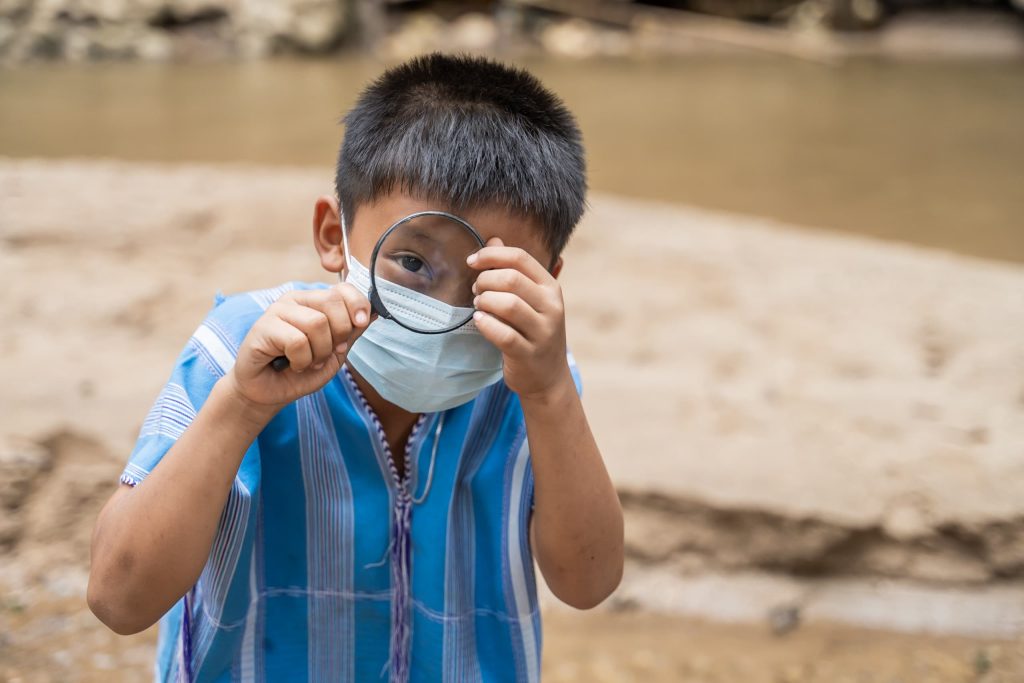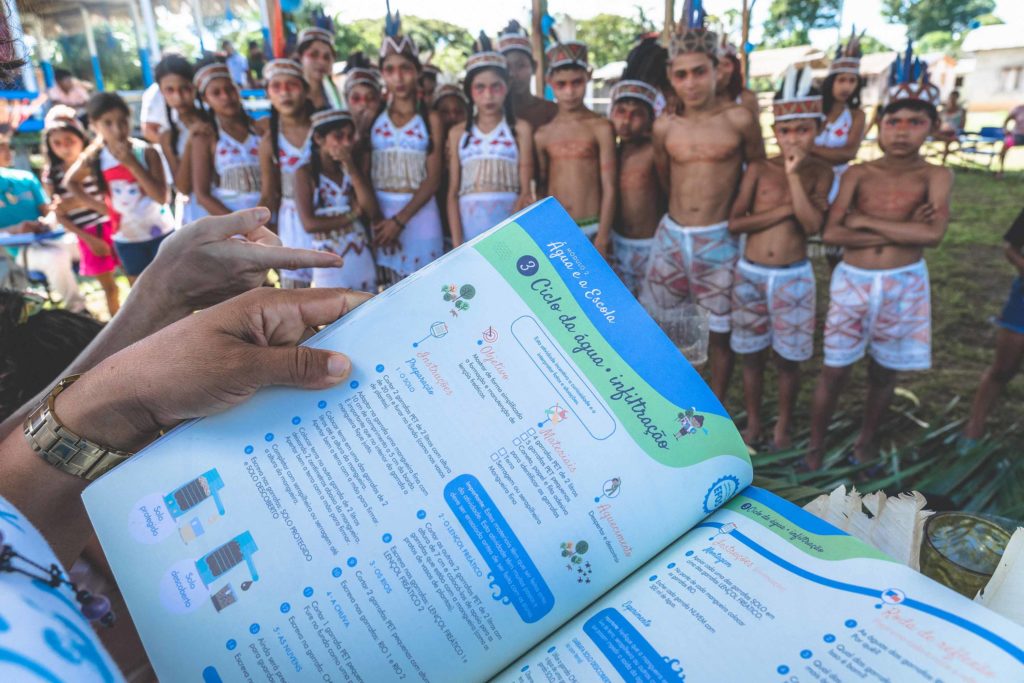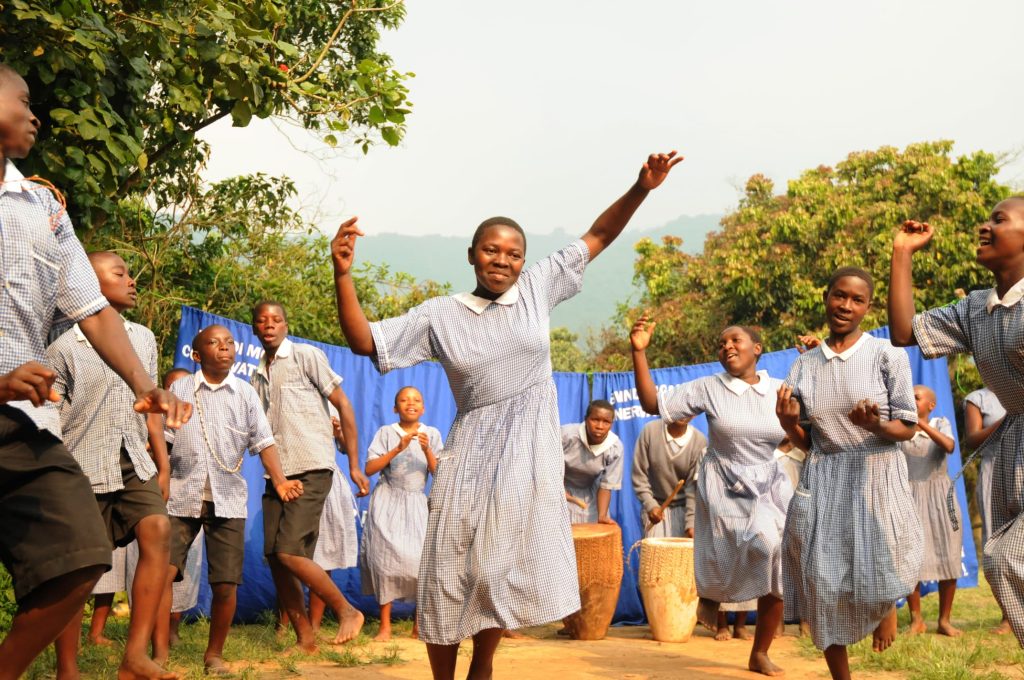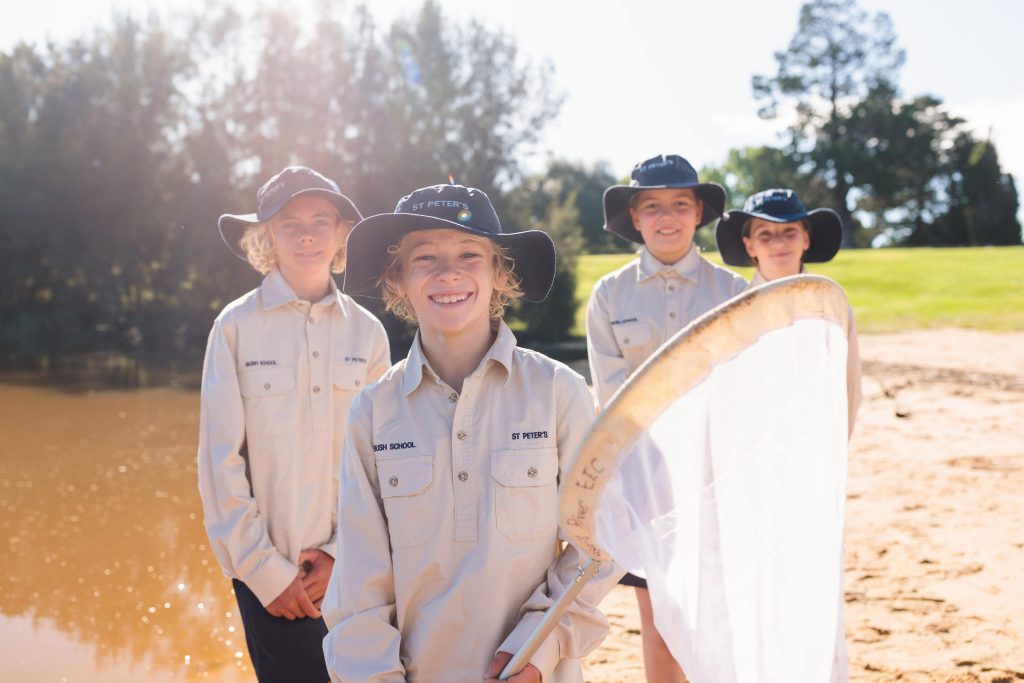
III
Pillars: Water
As a Corporate Foundation, we took inspiration from our historical legacy, aligned with its philosophy, and began supporting projects and organizations that promoted the protection of the environment.
The Swarovski Foundation has been a champion for a multitude of environmental causes since its start, spanning from safeguarding natural ecosystems and biodiversity, to raising awareness and advocating for policies to combat the far-reaching effects of climate change.
Investing in reforestation, for example, was always of immense importance to us. These projects not only mitigate climate change, but also restore degraded ecosystems and protect biodiversity, which directly benefits local communities by providing them with a sustainable source of income, clean water, and protection from natural disasters.


4 years ago, The Nature Conservancy presented us with an amazing opportunity to support their reforestation project in Mantiqueira, a region which has over 1 million hectares of land with the potential to be restored. Thanks to The Nature Conservancy’s project, municipalities, landowners, universities, corporations, and local associations have come together to advance the restoration agenda.
Through this project over 40 municipalities with legal frameworks that support restoration have already been established and more than 2,900 people have been trained on restoration-related issues. Additionally, more than US$2.5 million has been leveraged to enable restoration and conservation activities. Mantiqueira will now be able to provide essential ecosystem services such as sufficient water for over 20 million people, agriculture, and industries, as well as clean air and carbon storage, which results in benefits not only to the environment but also direct improvements to the lives of local communities.
Along the way, we came to realize the crucial importance of mangrove restoration in providing essential benefits to the environment and local communities.
Mangrove forests are vital in stabilizing shorelines, protecting coastal areas from erosion, and mitigating the impacts of climate change by sequestering large amounts of carbon. They are also home to a diverse range of species, from fish to birds and mammals, and support millions of people who rely on mangroves for fishing, farming, and other economic activities.


They also act as natural filters, removing pollutants from the water and improving water quality, which is critical for the health of both humans and marine life. Unfortunately, human activities such as illegal logging, development, and climate change have put mangrove forests in danger, making restoration efforts even more critical.

In 2020, we had the opportunity to lend our support to Conservation International’s project, which aims to foster community development and enhance local livelihoods on Chira Island by promoting mangrove conservation and restoration. This project is also committed to empowering local groups, led by women, to improve their well-being through sustainable alternative livelihoods.
Support from the Swarovski Foundation has meant the project has successfully engaged with 3 communities to establish mangrove nurseries and provide training on mangrove restoration. These efforts have helped to promote empowerment and create sustainable livelihoods, by supporting women leaders in the development of micro eco-enterprises, while restoring the precious mangrove forests that are so essential to the well-being of both the environment and local communities.
We also wanted to lend support for one of the most pressing issues facing our oceans today – overfishing. So, we decided to take action and teamed up with the Blue Marine Foundation, which has been working to tackle overfishing in the Aeolian Islands since 2017.


Prior to their pilot education project in 2019, there was only 1 local organization working on marine conservation education in Aeolian schools, with a focus on plastic pollution. We knew we had to do more, and that’s why we decided to support the Blue Marine Foundation’s marine conservation project.

The project aims to raise awareness and increase understanding of marine protection among local communities through educational programs and hands-on experiences. By delivering marine education programs to local school students, Blue Marine Foundation hope to improve their awareness, knowledge, and attitudes towards marine conservation. Our joint goal is to encourage pro-environmental behaviour change and strengthen scientific and diving skills of local and international volunteers through hands-on field experience.
We are proud to say that our efforts have impacted over 3,417 young people directly so far. Over 52,342 people have been impacted indirectly, including teachers who gained knowledge of marine science, fishermen who received formal training in scientific theory and members of the public engaged through their social media campaigns to promote the activities of the educational program.
These are just a few of the angles we’ve taken over the span of 10 years.
As we reflect on the invaluable lessons learned during the past decade, we now move forward by centering our efforts and directing our attention towards a single critical issue we can magnify our impact on exponentially; by refocusing our thematic approach to water, we can make a significant difference in addressing one of the world’s most pressing concerns.
Water is at the core of everything. It connects to, and has a direct impact, on many different other areas such as food, energy, security, and the economy.
It is not just a basic human right; it’s also a priceless asset for both people and the planet. But water is a limited and unevenly distributed resource, and that makes it all the more crucial to learn how to manage it sustainably.
In the past, the significance of water in driving positive development was not widely acknowledged. However, the scarcity, pollution, and devastating power of water are increasingly becoming a pressing concern, bringing its crucial role in the global environmental and societal context to the forefront of people’s minds, who recognize the vital role of water and so work towards understanding, cherishing, and sustainably managing it to secure a better future for us all.
ENDURING FACTS
All our key environmental challenges are connected to water – whether there is too much, too little, or too polluted for human use
Collaboration is key to achieving water sustainability. We must continue to work together across different sectors to restore our ecosystems, reduce the harmful effects of climate change, promote human health and livelihoods, and provide clean water and sanitation to everyone.

By educating ourselves and others, we can create a more water-resilient world for generations to come.
And to make this happen, we need to prioritize environmental education from an early age. Previously, education had been disregarded as a solution to address water challenges. However, now more than ever, it is being acknowledged as a powerful tool for driving change. Education can equip individuals with the knowledge and skills needed to conserve water and manage this resource. By educating ourselves and others, we can create a more water-resilient world for generations to come.
Starting in schools and continuing through university, we need to equip people with the knowledge and skills they need to make a positive impact on the world. This includes on-the-job training to ensure that people can implement sustainable solutions and adaptations in their local communities.
Through our support for education programs, we aim to create a shift in awareness that will foster lasting positive changes in behavior and transform water management systems for generations to come.


We are committed to tackling the glaring inequalities brought about by water challenges, especially the economic pressure faced by women and young people. As part of our Water Pillar, we have resolved to provide comprehensive water education that empowers communities to take charge of their water resources. Together, we can build a global network of informed and educated individuals who are committed to creating a more equitable and sustainable future.
With that in mind, the Swarovski Waterschool will be integrated into the Swarovski Foundation as the signatory program of the newly denominated Water Pillar. This is an incredible opportunity for us to continue building on the legacy of a project that has already demonstrated its success for over 20 years and will allow the program to amplify its impact and connect with Foundation partners to address the critical challenges of equitable education and access to safe water.
Waterschool
The Waterschool is an educational program developed to empower young people and their communities by providing tools, resources, and training to enable them to address their local water needs.
The protection of our water resources is more important than ever, and the Waterschool is spearheading this movement. With the support of the Swarovski Foundation and other partners, we can ensure that young people around the world have the tools and knowledge they need to make a real difference in the fight for a better, more sustainable future.

“Water, rivers, and communities go hand in hand. By teaching about the fragility and responsibility that we all have as custodians of this wonderful resource, we are ensuring a better future for our world.”
– Nicholas Hall, Principal,
Georges River Environmental Education Centre—NSW, Australia
The evaluation of the Waterschool has shown that it is doing exactly what it set out to do: broadening the horizons of young people and building their knowledge about critical environmental issues and the challenges that they will face in the future.
Because of the success of the program in Austria, the Waterschool has now expanded into a global initiative.
Through the Waterschool, we work alongside local partners to bring education about sustainable water use and protection of nature to young people between the ages of 8 and 18, and through them, their families and communities. By inspiring a lifelong passion for this crucial subject, we are creating a generation of water ambassadors.
“The Waterschool project changed my life in every aspect. It was where my desire to fight for the environment first emerged. I hope that all of our efforts pay off, so that in the future other people can take advantage of the resources we have today.”
Samara Reis,
Waterschool Ambassador,
Brazil Santarem


Our comprehensive program is designed to educate teachers, students, and communities about the principles of sustainable water management, hygiene, and the environment. We accomplish this through our Waterschool teaching materials, which are designed to engage and inspire to make the learning process both informative and fun.
But we don’t stop there. We know that usable water is essential for healthy communities. That’s why we combine education with action and provide access to these resources wherever they are needed, from safe water to sanitation facilities, to help to create healthier communities.
The Swarovski Foundation Waterschool program has made a significant impact in educating communities around the world. With this new integration, we can continue to expand our reach and make an even greater difference in the lives of people and the health of our planet.
Since 2000, the Waterschool program has educated 800,000 children about the importance of water and engaged with over 23,000 teachers globally in over 2,500 schools.
What began as a local project has since evolved into a global initiative that now operates within watershed areas of 8 of the world‘s major rivers—Danube, Ganges, Yangtze, Nile, Amazon, Chao Phraya, Mississippi, Parramatta—in 8 countries: Australia, Austria, Brazil, China, India, Thailand, Uganda, and the USA.

